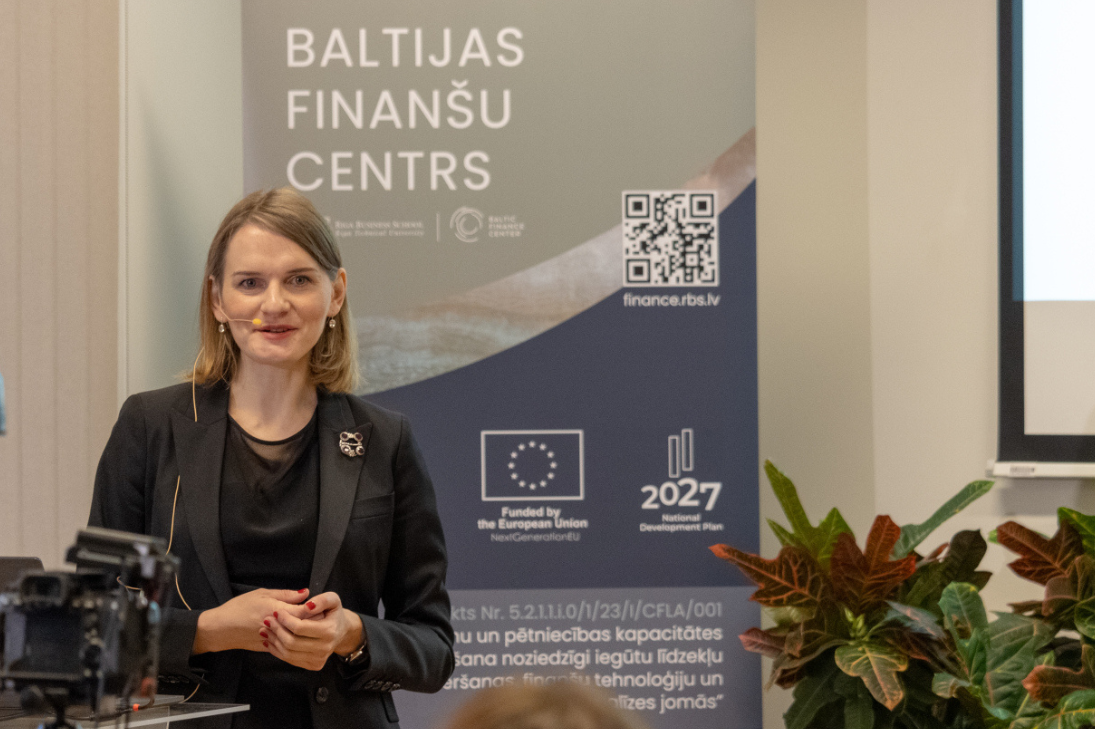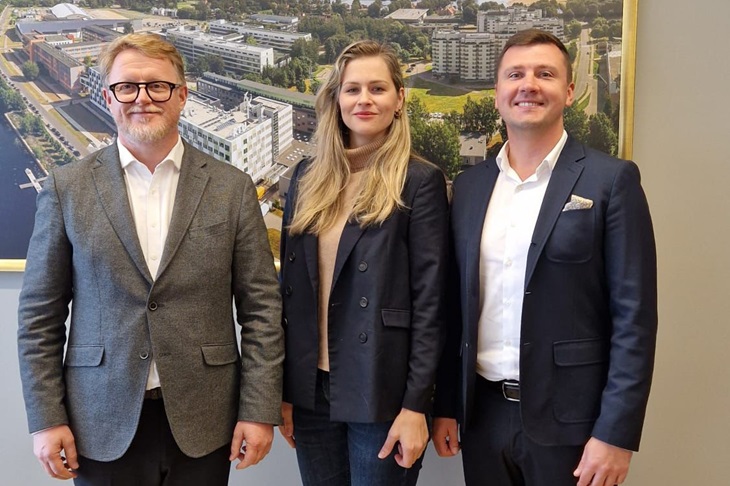The Latvian mortgage market needs significant growth to become more open, dynamic, diverse, and borrower-friendly – concludes the RBS Baltic Financial Center (BFC) in its first study. The research paper “Mortgage Lending and Promoting Competition: Time to Shift Gears?” analyzes other countries’ experiences and stimulates discussion about the development of Latvia’s mortgage market over the next 5-10 years.
In Latvia, four major banks dominate almost the entire housing market, with their lending primarily financed through deposits. Meanwhile, in other countries’ markets, new players have entered after the financial crisis, including financial technology companies, new types of non-bank lenders, and institutional investors such as pension funds and insurers, who find investments in mortgage markets very attractive. These new players have filled market “niches” and offer a wider range of products, including mortgages with fixed interest rates.
After studying other countries’ experiences, BFC experts outline a vision for how Latvia’s mortgage market should look in the next 5-10 years to initiate a broader discussion about its development potential. The market should welcome more diverse players – not just banks, but also fintech companies and other non-bank and specialized lenders. Diversification of funding sources is also needed, attracting both Latvian and foreign institutional investors, including pension funds and insurance companies, and developing the capital market. The study emphasizes that in a modern mortgage market, aggregators, brokers, and comparison technology platforms play an important role in helping consumers navigate available offers and significantly simplify processes, but this segment remains underdeveloped in Latvia. As the market evolves, the regulatory and supervisory approach must also develop.
“The key to effective competition is an active borrower who compares different offers and considers not only well-known lenders but is also willing to give opportunities to new and less familiar market participants. Over the past year, thanks to the collaborative work of many parties, significant barriers to refinancing have been removed, but in our opinion, this won’t be enough. Too much burden is still placed on people’s shoulders. In comparison, other countries provide much more support through both brokers and various digital comparison platforms. For example, in the Netherlands 60 % and in the UK 75 % of new loans are issued through intermediaries. Modern technologies also open up many possibilities – why aren’t they being used?” emphasizes one of the study’s authors, BFC director Kristīne Dambe, who previously worked at the British financial regulator on competition promotion issues and has returned to Latvia to transfer this experience.
The study’s authors support the progress made in recent years in opening up and developing the mortgage market, but question whether this work will continue when media and public pressure subsides. Monitoring whether the implemented changes have been effective and sufficient will be particularly necessary in the coming years. The study concludes that one of the main obstacles to implementing further changes is the fragmented system – many different institutions must be involved in directing, implementing, and evaluating changes. The biggest uncertainties currently concern the division of responsibilities for market development and competition promotion between the Ministry of Finance, Competition Council, both sector regulators (Bank of Latvia and Consumer Rights Protection Center), and the Financial Sector Development Council. Moreover, compared to other countries, the Competition Council currently lacks the necessary authority, tools, and human resources to intervene in such markets where the competition process isn’t working effectively but competition law isn’t being violated.
Commenting on the BFC study, Finance Minister Arvils Ašeradens emphasizes: “Latvia has not had sufficiently developed independent policy research that would promote quality discussion and help make research-based decisions, so the entry of such a new think tank into the industry ecosystem is particularly welcome.” The minister agrees that the financial policymaking and implementation environment in Latvia is fragmented, which can complicate decision-making, therefore such analysis provides an opportunity to review system shortcomings.
Bank of Latvia President Mārtiņš Kazāks highlights the long-term perspective in developing the mortgage market: “I agree this is a marathon, not a sprint. The work of previous years has borne fruit, the situation is already much better, and I very much hope that we will continue to move forward constructively step by step, looking not only at banks but more broadly. The playing field can be much more diverse to offer society the most suitable services. The market needs to be opened to new financial service providers, including non-banks and fintech companies, moving toward a European-level unified market in financial services. This is necessary to make financial services, including mortgages, cheaper, better adapted to the needs of different population groups, and equally accessible in both cities and regions.”
Meanwhile, Financial Industry Association head Uldis Cērps acknowledges: “I agree that we need to be open to new business models in housing lending that could be implemented under Bank of Latvia supervision. We also emphasize the study’s indicated need to significantly improve Latvia’s economic analytics quality, particularly regarding the evaluation of new legislative initiatives’ impact on financial market participants, consumers, and financial stability.”
Head of Fintech Latvia Association Tīna Lūse confirms the readiness of new players to enter the market: “We see that there are quite active alternative financial service providers in the Latvian market. Some of these market players are also focusing specifically on real estate services for both private individuals and businesses. Moreover, importantly, some of these companies plan not to limit themselves to operations only in the Latvian market but to enter other global markets as well, which is particularly important for a small economy like Latvia. Our task is to reduce bureaucratic barriers for such companies’ operations in Latvia.”
The study was funded by the European Commission’s Recovery and Resilience Facility. The study’s authors are BFC economists and experts Kristīne Dambe, Andrejs Jakobsons, and William Schaub.
The full study can be accessed on the Baltic Financial Center’s website.
Video recording of the study presentation and panel discussion: https://www.youtube.com/live/62gdZI5SKVk?feature=shared&t=1175









